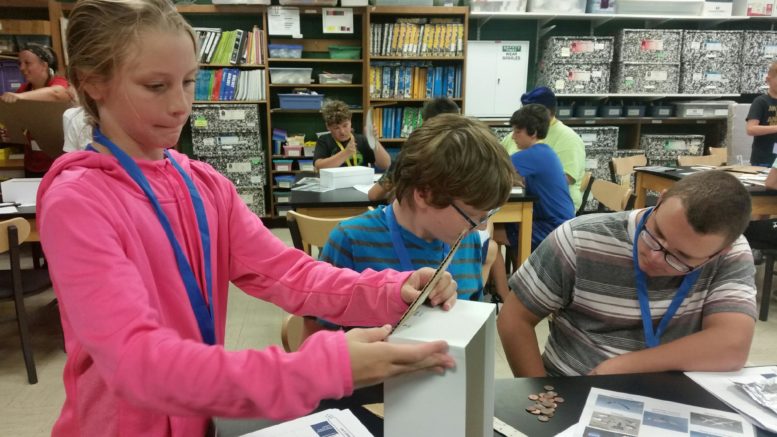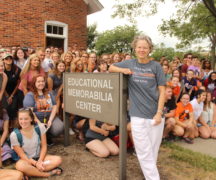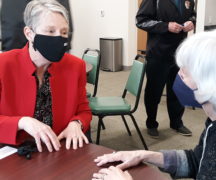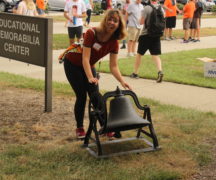By DAVID DUPONT
BG Independent News
Most summers Bowling Green State University invites local students on campus for academic enrichment camps. They get to experience a bit of campus life and do hands-on activities outside.
The coronavirus pandemic put the kibosh on that for this summer.
So the College of Education and Human Development and the Office of Pre-College Programs are teaming up to offer two-week online academic enrichment camps in reading, science and math for students in grades 3 through 8.
Gabriel Matney, a professor of math education, developed the program with Kari Storm, coordinator of pre-college academic and youth programs.
School administrators, teachers, parents and students are concerned that students have lost two and a half months of in-class instruction, Matney said. The move to emergency remote instruction has meant “a decline in the amount of instructional time they’ve actually had.”
Now compound that with three months of summer, he said, and “you have a particularly detrimental situation for students who don’t have access to high quality material for their own learning or to keep their minds engage throughout the summer.”
Matney said they are working with instructors, all BGSU education graduates, “to design these online camps to be as enjoyable and engaging as possible, as if students were in person on campus. We’re looking at keeping students minds engaged in reading, math and science through the summer.”
The “fun” for Matney and the others is they get to innovate in creating these online camps.
The instructors know what it is to suddenly be thrust from the classroom into the digital world. They are bringing that experience to the task of designing the online classes.
The students who sign up will get five hours of instruction over the two-week period with two instructors and up to 15 students in a section. They will also have five hours of activities to do on their own.
Each camp will be offered twice. The first session will be June 15-26, and the second July 6-17. They are divided up by grade level, grades 3-4, grades 5-6, and grades 7-8 and offered in science, math, and reading. The sessions are designed so students can take both sessions in any given subject.
Students will get a packet for each class with materials they can use. “That’s one of the difficulties we faced as instructors moving so quickly to online learning,” Matney said. “In our classrooms we have a lot of things that help students” understand the lessons.
So, the math students at home, for example, didn’t have fraction tiles, snap cubes, pattern blocks and other manipulatives. Those will be provided. If students are studying virtual reality, a set of VR glasses will be included. Or they will have everything they need to conduct a science experiment. Or the books they will read.
In contrast to March, he said, “we’ve had more time to think through and plan to make this as interactive and meaningful as we can.”
Another key to successful remote learning is having the synchronous time when all the students and teachers are in the virtual class together and getting to know each other.
Each session will cost $75 with discounts for enrolling in multiple sessions. There is some financial aid for students who need it. Those without computers should contact the program. Some schools are extending the loan of equipment from the school year to students enrolled in the BGSU camps.
The fee, Matney said, covers the cost of offering the program. Part of Dean Dawn Shinew’s charge to him was that the program be as cost effective as possible so it could reach students who don’t have the resources to get tutoring or other academic enrichment.
Because the university itself is in the midst of a financial crisis, it cannot offer the camps for free. But organizers are reaching out to foundations and other partners to help provide financial help.
The program focuses on this age range because students in high school have other options such as College Credit Plus courses to stay engaged, Matney said. For the youngest students remote learning is not successful without a great deal of involvement by the parents. There are resources for those students.
Click here to find more information and to register for the online camps.




